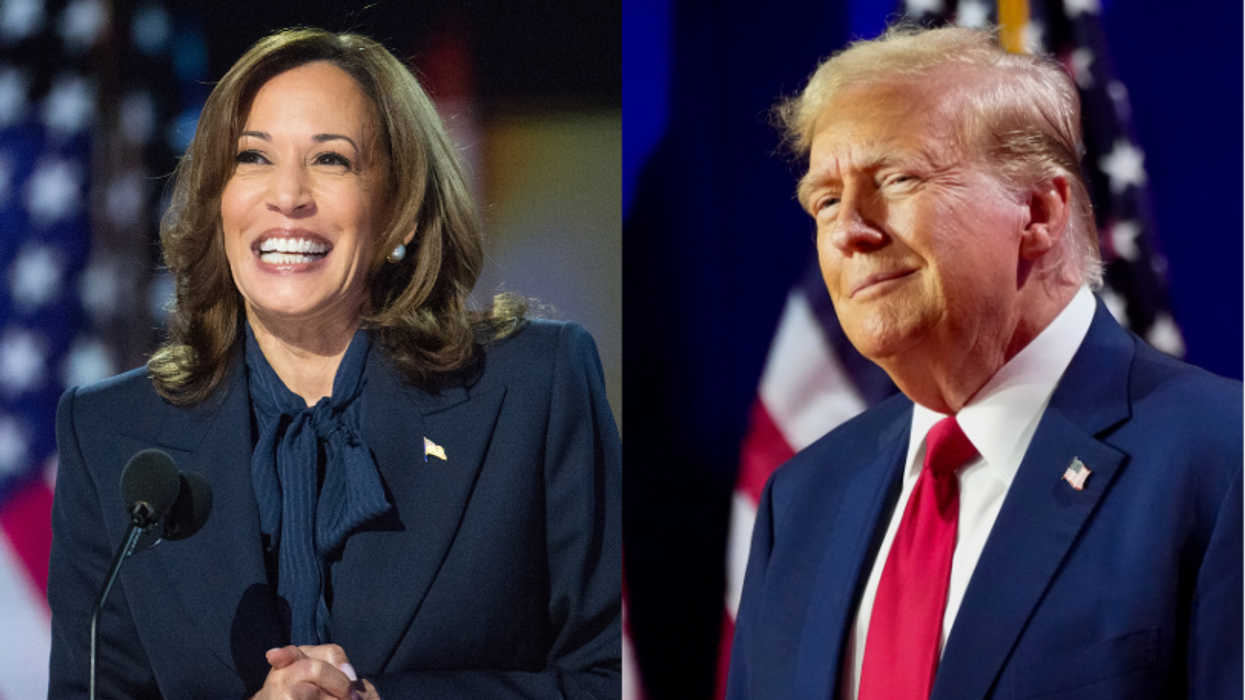Schmidt is a columnist and editorial board member with the St. Louis Post-Dispatch. Nevins is co-publisher of The Fulcrum and co-founder and board chairman of the Bridge Alliance Education Fund.
The Fulcrum is a platform where insiders and outsiders to politics are informed, meet, talk and act to repair our democracy and make it live and work for our everyday lives. To be successful, it is essential we earn the trust and respect of our readers by maintaining an impartial stance.
That task is particularly difficult in covering this presidential election, in which one candidate has crossed many ethical red lines for so many Americans and the media must engage in Olympic-level journalistic gymnastics to remain bipartisan when, in many situations, there is no moral equivalence.
Moral equivalence is a fallacy commonly used in politics. It occurs when two different or unrelated issues or positions are falsely said to carry the same moral weight. This fallacy attempts to excuse the morality of the issue by blaming unequal behavior by the other. The term “moral” is doing the heavy lifting here.
Individuals or political parties that use this fallacy are rarely interested in solving a problem or learning how to govern more effectively. Rather, the goal is to win an argument or an election.
We, the authors of this piece, come at this issue from somewhat different perspectives but arrive at the same conclusion. It is impossible to remain politically neutral in our work without falling into the moral equivalency trap. David Nevins is the co-publisher of The Fulcrum and is the steward of its mission. Lynn Schmidt is a contributing writer.
Nevins believes that faith and trust in our democratic institutions is essential for the well-being of our democratic republic. If our nation is to succeed, it is critical in today’s contentious and partisan political climate that the search for solutions be based on reason, logic and inquiry, where a conclusion follows from a set of core principles of decency.
Thus, when those running for office threaten our democracy, Nevins believes we must take a stand. We must harness the tension of our differences as we continue the journey to live into our country’s motto: e pluribus unum. Out of many, we are one.
Nevins postulates that America is exceptional because it was launched with a dream to take the diverse many and make them one. We can only fulfill this dream if we speak out against those violating this basic principle.
Schmidt fears that readers might think her opinions are too balanced or wonder why she has not voiced her opinion as to which candidate is the greater threat to democracy. Schmidt understands that if she came out strongly against former President Donald Trump or Vice President Kamala Harris, those strongly in favor of the other candidate would be turned off and likely close their mind to the essence of the message.
That said, readers should understand that this piece, like her other writings in The Fulcrum, does in fact have strong convictions as to who is a greater threat to our democracy. While she believes there is excessive rhetoric being used by both Harris and Trump, she also believes there is no moral equivalency between the two presidential candidates.
As a conservative, Schmidt agrees with very little of Harris’ policies and proposals but cannot, in good conscience, say that one of the two candidates is the “lesser of two evils” when it comes to just policies.
However, there are also issues of conscience, and Trump put himself above the voice of the American people and his oath to our Constitution following the free and fair 2020 election. The way he speaks of the disabled, immigrants and veterans, just to name a few, is repugnant. A second Trump term would also likely see further erosion to our democratic institutions. There is no comparison.
John Steiner, a Mediators Foundation board member, wrote: “Millions of Americans from all sides of the political spectrum, who share basic human values of love, respect and inclusion, want our elected leaders to work together to resolve the great issues we face as a country and as part of the world community of nations. Uniting, not dividing leadership is called for now more than ever. There can be no hope for common or even higher ground as long as this President or any leader supports intolerance, bigotry or hatred.”
Nevins’ and Schmidt’s judgment stops at Trump himself and does not extend to the millions of voters who are set to cast a vote for him on Nov. 5. This is also not an endorsement of Harris.
Thus, since those who read the writings in The Fulcrum have a wide range of perspectives on Harris and Trump, plus have a varied array of values, priorities and opinions as to what constitute moral actions or words of candidates, we will defer to you to make your own decision. We say this as neutrally as we can: Ultimately, it is incumbent on each and every one of us to decide what we think is morally right or wrong while trying to avoid a deceptive cognitive trick.



















 From left to right: Gabriel Cardona-Fox, Bud Branch, Joe Concienne
From left to right: Gabriel Cardona-Fox, Bud Branch, Joe Concienne 